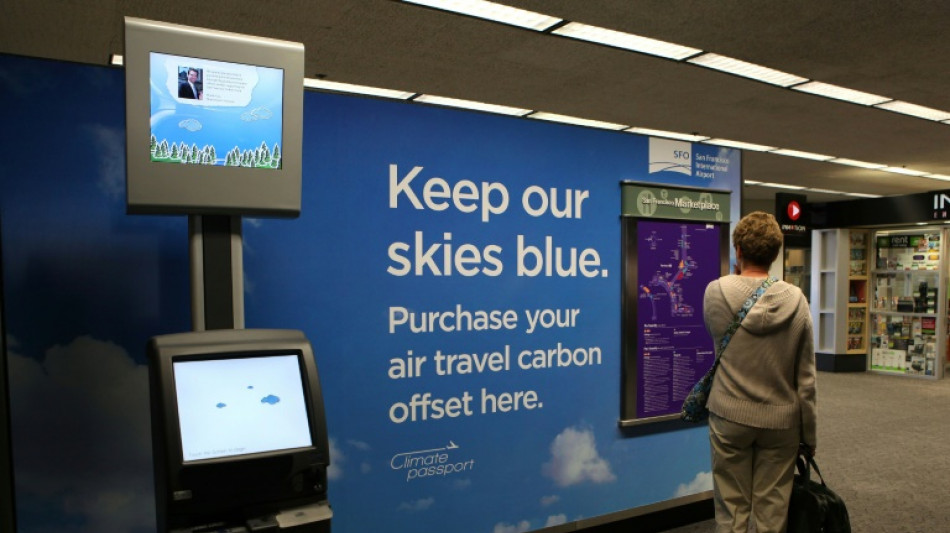

Corporate climate pledge weakened by carbon offsets move
The world's main benchmark for vetting corporate climate action has been accused by its own staff of "greenwashing" after allowing businesses to use carbon credits to offset pollution from their value chains.
The ruling by the Science-Based Targets Initiative (SBTi) was slammed as a "coup" on Thursday and has sparked a revolt by staff who want the decision reversed and the non-profit's CEO and board to resign.
Experts say it could irreversibly damage the credibility of the SBTi, which is partnered with the UN Global Compact and WWF, and is the gold standard for assessing the net zero plans of big business.
An internal letter sent to SBTi leadership, and seen by AFP, said the board's decision was taken without adequate consultation, defied science, and "resulted in significant harm to our organisation’s reputation and viability.
"We stand ready to support any efforts aimed at ensuring that the SBTi does not become a greenwashing platform where decisions are unduly influenced by lobbyists, driven by potential conflicts of interest and poor adherence to existing governance procedures," read the letter to SBTi's CEO and Board of Trustees.
"In the event that our concerns are not addressed, SBTi staff will have no choice but to take further action," it added, without elaborating on what that would mean.
It was signed by staff from "the Target Validation Team, Target Operations Team, the Technical Department, Communications, Impact and IT, and multiple department heads."
Comment has been sought from SBTi and the We Mean Business Coalition, one of its main partners.
- 'Extremely serious' -
On April 9, SBTi issued a statement rolling back its previous opposition to the use of carbon credits to offset Scope 3 emissions.
These occur in the value chain, and represents the lion's share of the carbon footprints -- in some cases more than 90 percent -- of most companies.
Carbon credits are generated by projects that reduce or avoid emissions -- like renewable energy, tree planting and forest protection -- and sold to companies wanting to offset pollution from their activities.
But critics say offsets give corporations a free pass to keep polluting without cleaning-up their act, and their usage to make claims of "carbon neutrality" has become increasingly contentious.
Gilles Dufrasne from Carbon Market Watch, who sits on the technical advisory group to SBTi, said allowing their usage by companies represented a "fundamental U-turn on SBTi policy so far".
"It is pretty much a coup from the board," he told AFP, adding at least one member of the advisory group had resigned in protest.
"It's extremely serious, I've never seen anything like it."
Verification by SBTi allows companies to say their climate plans align with science and the goals of the Paris agreement to limit global warming.
More than 4,000 companies and financial institutions have sought to have their net zero claims verified by SBTi, the nonprofit said.
Dufrasne said the decision was "extremely damaging" to corporate climate responsibility because it sent a signal that companies could just pay someone else if they can't meet their own targets.
"I'm not sure if SBTi's credibility can survive this," he said.
H.Wagner--LiLuX



